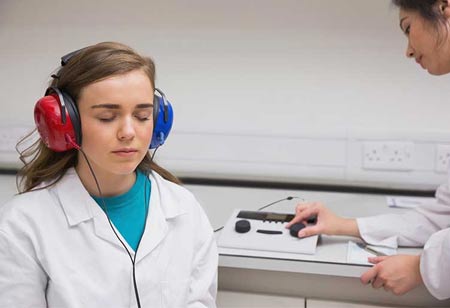Overcoming Obstacles in Alcohol and Drug Rehab: A Guide to Success
The challenges that drug and alcohol rehabilitation experiences include addiction, co-occurrence of mental health, stigma, family dynamics, and relapse.

By
Medical Care Review | Friday, May 02, 2025
Stay on top of your health and well-being with exclusive feature stories on the top medical clinics and treatment centers, expert insights and the latest news delivered straight to your inbox. Subscribe today.
Fremont, CA: Substance use disorder treatment, commonly referred to as drug and alcohol rehabilitation, involves a comprehensive process aimed at assisting individuals in overcoming their addiction. While the journey toward recovery can be profoundly rewarding and transformative, it is often fraught with challenges that may deter individuals from pursuing their recovery. Understanding these challenges is crucial for the patient, their family, and healthcare professionals, as it creates a supportive environment conducive to sustained recovery.
Addiction affects rehab for drug and alcohol cases because it alters brain chemical levels, resulting in people developing compulsive behavior for the substance or cravings without being able to help their states. Physiological dependence is psychological dependence attached to substances, which prevents one's recovery. Rehabilitation has that phase of withdrawal where such symptoms can be unpleasant at times and quite severe most of the time, deterring treatment. Such a rehab program, therefore, should entail sufficient medical support and checks during this phase.
Addiction could be pretty complex because the cases of many drug addicts having co-occurring disorders like depression, anxiety disorder, or disorders associated with trauma make their recovery hard to achieve. After all, it may be hard for a victim to get away from an addiction that has mixed itself up with another underlying problem like depression. So, overcoming such complex disorders calls for integrated treatment.
Rehabilitation can be barred by the stigma surrounding addiction because individuals may fear judgment or discrimination from society, friends, and family. It attracts feelings of shame and isolation and discourages others from seeking rehabilitation. Rehabilitation can be encouraged through a supportive environment and public awareness campaigns about addiction as a disease, reducing stigma and promoting compassion.
Family dynamics can also impact and play a crucial role during rehabilitation. Family relations will be strained because of how addiction affects people's lifestyles, and family members struggle with their emotions, anger, resentment or fear of each other. Good rehabilitation involves engaging in family therapy in a meaningful way where the affected will be able to have those loved ones participate in recovery efforts, learn about the affliction, and gain proper communication skills. In dealing with these family dynamics, one would face the challenge of how to mend and build support.
Many rehabilitating clients do not access quality treatment for addiction due to the geographical and economic accessibility of these services, where resources vary in the locality, and most cannot afford them. There are too few treatment centers and very little or no insurance coverage to make this easier. There is, therefore, a need to advocate for increased rehabilitation services and wide-scale insurance coverage.
Relapse is the biggest challenge in recovery and sometimes often indicates failure. Yet, it's not an incurable problem. Installing mechanisms and support allows for controlling triggers, keeping one committed to recovery. Aftercare does not even prevent recovery; instead, sobriety may even be renewed for life, stopping recovery altogether. Attend support groups, therapy, and community resources: You learn various skills during rehabilitation, but they make you accountable for your life.







